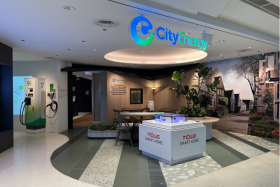Six in 10 Singaporeans recycle regularly, but they are not necessarily doing it right
Many still wrongly identify recyclable items
Singaporeans are recycling, but they are not necessarily doing it right.
According to two household recycling surveys conducted by the Ministry of the Environment and Water Resources (MEWR) and the National Environment Agency (NEA) recently, six in 10 Singaporeans recycle regularly, but knowledge about what can and cannot be recycled needs to be improved.
MEWR and NEA surveyed a total of more than 5,000 randomly selected Singapore households between last June and February, both agencies said yesterday in a joint statement.
The surveys found that the most common channel for recycling was the blue recycling bins, with 56 per cent of regular recyclers using the bins at least once a week.
MEWR's survey found that convenience was a key consideration for Singaporeans who recycled regularly, along with encouragement by the Government, and concerns about being wasteful.
NEA's survey also found that recycling was "second nature" to households which recycled regularly and came naturally as part of their daily routine.
In contrast, respondents who did not recycle cited reasons such as having too few items to recycle, being too busy or tired, or not having enough space to accumulate recyclables in the home.
When asked to classify items into recyclables and non-recyclables, respondents were able to correctly identify an average of seven out of 10 items. However, many respondents also misidentified non-recyclable items as recyclables. These included contaminants which should be disposed of as general waste, such as tissue paper. For instance, only 33 per cent were able to identify soiled food packaging as a non-recyclable.
Another category of misidentified items was reusables which are not suitable for recycling, such as clothes and shoes. Such items, if in good condition, should be donated instead, the statement said.
Another 60 per cent of respondents wrongly believed that recyclables had to be sorted by type before being deposited into recycling bins or chutes, while 43 per cent did not realise that recyclables are sorted at material recovery facilities after being collected.
When asked why such misconceptions exist, Professor Md Saidul Islam from Nanyang Technological University's Asian School of Environment told The New Paper that while environmental issues have been a part of the discussion in Singapore for long, the practice of recycling is relatively new.
In the statement, MEWR and NEA said that efforts are being made to encourage and make recycling more convenient for households.
Get The New Paper on your phone with the free TNP app. Download from the Apple App Store or Google Play Store now


